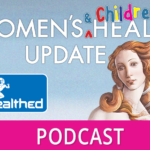Menopausal hormone therapy is associated with dementia, but experts warn the connection may not be causal.
Menopausal hormone therapy is linked to an increased risk of dementia in later life, even with short-term use, a recent Danish study suggests.
But experts have warned against assuming MHT causes the problem.
The observational study, published in the BMJ, found women who took MHT had 24% higher risk of developing dementia and Alzheimer’s disease compared to those who did not take the therapy.
The risk was increased even for those who only took MHT short-term and took it early in menopause – but it rose with longer use.
Of the 60,000 Danish women in their 50s who were followed for two decades, the registry data showed that 5600 women developed dementia, and 1500 of these had Alzheimer’s disease. Around 32% of the group with dementia had taken MHT, while only 29% of those without dementia had taken MHT.
Women were three-and-a-half times more likely to develop the condition if they used MHT for 12 years or more compared to those who only used it for one year or less.
But in an accompanying editorial, US professors in radiology and epidemiology urged caution. While it might appear MHT was to blame, those with more severe menopausal symptoms were more likely to seek this therapy, meaning that increased dementia risk could be the result of more severe menopausal symptoms, they wrote.
Australian experts also had concerns. Although they conceded the findings were worrying and required further investigation, caveats had to be considered.
Obstetrician and gynaecologist Associate Professor Gino Pecoraro, from the University of Queensland, said that the hormones and delivery methods used in this study were not necessarily the same as those used in Australia.
In the study, 90% of the women took MHT in the form of a combination oral medication containing oestrogen and progestin.
“Australian women are more likely to use native progesterone and the transdermal route for administration,” Professor Pecoraro said.
Risk of dementia increased slightly in those who started MHT at a younger age. Women who started oestrogen-progestin therapy between age 45 and 50 had a 26% higher chance of developing dementia compared to those who didn’t take the hormonal therapy, and 21% higher in those who started between age 51 and 60.
The was no association found between increased dementia risk and vaginal-oestrogen-only or progestin-only therapy.
Despite accounting for some confounding risk factors, such as socioeconomic background, the study did not account for other factors such as smoking or isolation.
Kaarin Anstey, Scientia Professor of Psychology at UNSW and leading dementia researcher, said that results could be indicative of links to an earlier onset of dementia, rather than increased incidence overall.
“The follow-up interval meant that the study identified dementia cases occurring with a median age of 70, which is far younger than would usually be seen if the cohort had been followed up for longer,” Professor Anstey said.
Professor Anstey said the differences between groups might shrink if they were followed into their 80s.
The symptoms leading to women taking HRT may also be linked to increased risk of dementia, she added. “The overall differences in the expected rates of dementia suggest that there are some significant biases in this study which may be due to the methodology.”
Professor Pecoraro said the findings confirmed the need for ongoing research into how best to manage menopausal symptoms, “but should not be used as a reason to stop or change treatments we offer in Australia”.
Speaking to newsGP, Professor Martha Hickey, head of menopause services at University of Melbourne, echoed warnings that this was only an observational study, not proof of a causal relationship.
“However, the findings are concerning and reinforce recent guidance from the United States Preventive Task Force (2022) that HRT should not be used for the prevention of chronic conditions including dementia,” she said.
“Almost all of the women were on oral estradiol with norethisterone [Kliovance, Kliogest or Trisequens] as this is what was used as HRT in Denmark at that time. These preparations are almost never used in Australia,’ Professor Susan Davis, director of the Monash University Women’s Health Research Program, told newsGP.




